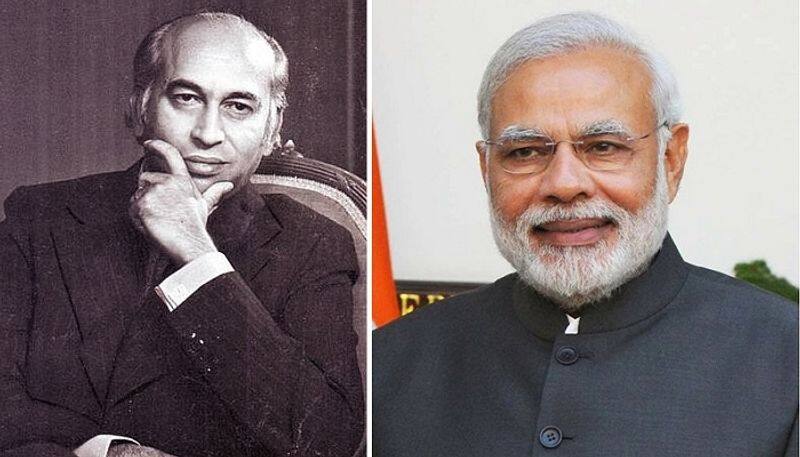The ‘thousand cuts’ policy of Pakistan, formulated in Staff College, Quetta, had not met with an effective Indian counter so far, thanks to the listlessness of successive governments we had in the past. India seems to have changed its mind in this regard since the Pulwama terror attack. India is now formulating and executing an integrated policy of a thousand squeezes against Pakistan — diplomatic, economic, strategic and military.
Much can indeed happen in a week. And some weeks, born in tragedy, can be deeply transformative. Some commentators have called it the difference between the way the horrors of 26/11 and Pulwama have been received by India. The contrast is in the outlook of the ruling dispensation of the day, and India’s current rising trajectory on the international graph.
Much before the late President Zia ul Haq, blown up in an aeroplane finally by persons unknown, Pakistan’s military formulated the ‘bleed India with a thousand cuts’ at the Staff College, Quetta, made famous later by Zulfikar Ali Bhutto who committed his country to a thousand-year war with us. But it was Haq who was largely responsible for the rapid Islamisation of Pakistan during his time in power from 1977 to 1988.
President Zia realised that a 'thousand cuts' was the best strategic option, given India’s conventional military superiority. Since then, both the countries have gone nuclear though it is debatable whether this does indeed right the balance.
Role of China
But with present-day Pakistan in dire straits financially, it has become a near colony of China. The China-Pakistan economic corridor has China investing upwards of $60 billion. It reaches out from Xinjiang, through PoK, bifurcating all of Pakistan, to Gwadar port in Balochistan on the coveted Arabian Gulf.
With China’s embedded support, in an ultimate and theoretical sense, Pakistan may not lack military equipment if push comes to shove, but will they have the military personnel to use it, given that India’s armed forces are more than twice as large?
It is highly unlikely China will go to war on Pakistan’s behalf, given that it has economic and political concerns as a regional and global power. It has, in fact, reluctantly condemned the Pulwama attack at the UNSC, even as it has held fast against declaring Masood Azhar a wanted international terrorist at the UN.
The Saudi predicament
There is also some sympathy for Pakistan from Sunni Saudi Arabia. This, both for the sake of historical ties and current strategic reasons, particularly vis-à-vis its hostility towards a Shia Iran. Pakistan has had the temerity to attack Iran in a similar suicide bombing almost simultaneously. Was this to curry favour with Saudi Arabia?
There are many Pakistanis employed in the desert kingdom and, traditionally, in the Saudi military too. So much so that Crown Prince Mohammed bin Salman bin Abdulaziz Al Saud, on his first visit to Pakistan, pledged $20 billion. But the money is a conditional pledge, and the Saudis urged to engage with Pakistan by the US, wield inordinate influence in Pakistan.
Saudi Arabia, with its weakening oil revenues from a global glut, has already invested $44 billion in India since 2016 when Prime Minister Modi visited Saudi Arabia. And now it wants to ramp it up to $100 billion.
This is a different America
America, once highly dependent on Pakistan for its logistics in Afghanistan, is, it is true, in need of Pakistani mediation with the Afghan Taliban at present. And then there is the hostility towards Iran — in common with Saudi Arabia — to contend with too.
This may well be the reason why Pakistan picked this particular time for the Pulwama attack. It may have calculated that the American reaction would be muted. On the other hand, Pakistan is in great need of a bailout from the IMF, which the US wields tremendous influence over.
Use of nuclear weapons, despite regular and loud threats from Pakistan, even the smaller tactical ones, are a zero-sum game. It would lead to an inevitable retaliation from India. While the effects would be cataclysmic, it can go much worse for a smaller Pakistan that lacks geostrategic depth.
A thousand squeezes in response to a thousand cuts
The ‘thousand cuts’ policy, spawned by Pakistan after losing three wars to India and the whole of East Pakistan that became Bangladesh, has however survived over many decades. But it has done so mainly because of the lack of a determined response from India to counter it and make it unaffordable. The ruling dispensation over the earlier several decades, given its large Muslim vote-banks, wanted to go easy on Pakistan.
That India seems to have changed its mind in this regard since the bombing at Pulwama a little over a week ago is apparent. India is now formulating and executing an integrated policy of a thousand squeezes against Pakistan — diplomatic, economic, strategic and military.
Indian covert operations, using a network of intelligence from home and abroad, have also reportedly been stepped up with unprecedented swiftness.
The almost immediate withdrawal of the unilateral most favoured nation (MFN) status, in place since 1996, was the opening gambit. All Pakistani imports have been slapped with a 200% duty, virtually ending them. Many Indian exporters to Pakistan from producers of tomatoes to consumer durables have decided not to sell.
A dossier of evidence and proof on JeM and Pakistan state involvement in the Pulwama bombing has been submitted to the FATF with a request to blacklist Pakistan, which is already on the grey list. The FATF has already cautioned Pakistan even as it is examining its position. Blacklisting could mean boycotts and sanctions from many. Pakistan, in a showy move, has banned two of the organisations associated with international terrorist Hafiz Saeed, yet again, for the sixth time — if anyone is impressed, or counting.
The BCCI has appealed to the ICC to ban Pakistan from the World Cup, reportedly supported by most leading cricket playing nations such as Bangladesh, Sri Lanka and South Africa. There are calls to stop all interaction in all other sports too.
Bollywood has decided to ban Pakistani participation of artistes, actors, singers and so on. Visas have been denied to Pakistani shooters for an IOC event, undeterred by the IOC stating that India will be debarred from hosting future events.
Security has been withdrawn from separatists and other protectees in the Valley for the very first time, freeing up hundreds of soldiers and vehicles for more worthwhile work.
Valley politicians are moaning loudly as their bailiwick is threatened. Calls for the revocation of Articles 35A and 370 of the Indian Constitution have grown intense once more.
The UNSC has issued a statement condemning Pakistan for its involvement in the Pulwama atrocity, naming JeM. This, while four out of five of its members have also issued individual statements. Additionally, there have been expressions of support from many countries for India.
India is also seriously moving to build dams and tunnels to re-channel waters flowing from India’s share (Beas, Ravi, Sutlej) presently into Pakistan, thus reviewing the Indus Water Treaty. The water will go instead to parched parts of Jammu and Kashmir, Punjab, Haryana and Rajasthan.
Cries of ‘enough is enough’ are frequently heard now.
All attempts at rapprochement through talks over the years have failed in the face of an implacable enemy. These constitute the Pakistani Armed Forces, its intelligence establishment led by the ISI, and its formidable collection of terrorist organisations.
The last, turned Frankenstein, are quite prepared to rebel if the Pakistani establishment tries to crack down on them. China too, it is reported, is wary of supporting the ban on the diabolical Masood Azhar for this reason.
All this comprehensive activity in just over a week, including the killing of the Pulwama mastermind, may not be the same as a quick strike to redress the balance. But the significant thing to note is that there may be many strikes in the future, not just one, and not necessarily in reaction.
In the lead up to the general election in a couple of months, the Modi government has been handed the political initiative over the opposition in a highly charged patriotic atmosphere.
Meanwhile, Pakistan is suffering the agonies of uncertainty, knowing full well there is more punishment coming. This even in addition to talks if and when they are undertaken, though at present even the Track II diplomacy has been suspended. The boa constrictor model of dealing with Pakistan has arrived.
The views of the author are personal; they do not necessarily reflect that of MyNation
Last Updated Feb 23, 2019, 9:34 PM IST











![Salman Khan sets stage on fire for Anant Ambani, Radhika Merchant pre-wedding festivities [WATCH] ATG](https://static-ai.asianetnews.com/images/01hr1hh8y86gvb4kbqgnyhc0w0/whatsapp-image-2024-03-03-at-12-24-37-pm_100x60xt.jpg)
![Pregnant Deepika Padukone dances with Ranveer Singh at Anant Ambani, Radhika Merchant pre-wedding bash [WATCH] ATG](https://static-ai.asianetnews.com/images/01hr1ffyd3nzqzgm6ba0k87vr8/whatsapp-image-2024-03-03-at-11-45-35-am_100x60xt.jpg)



